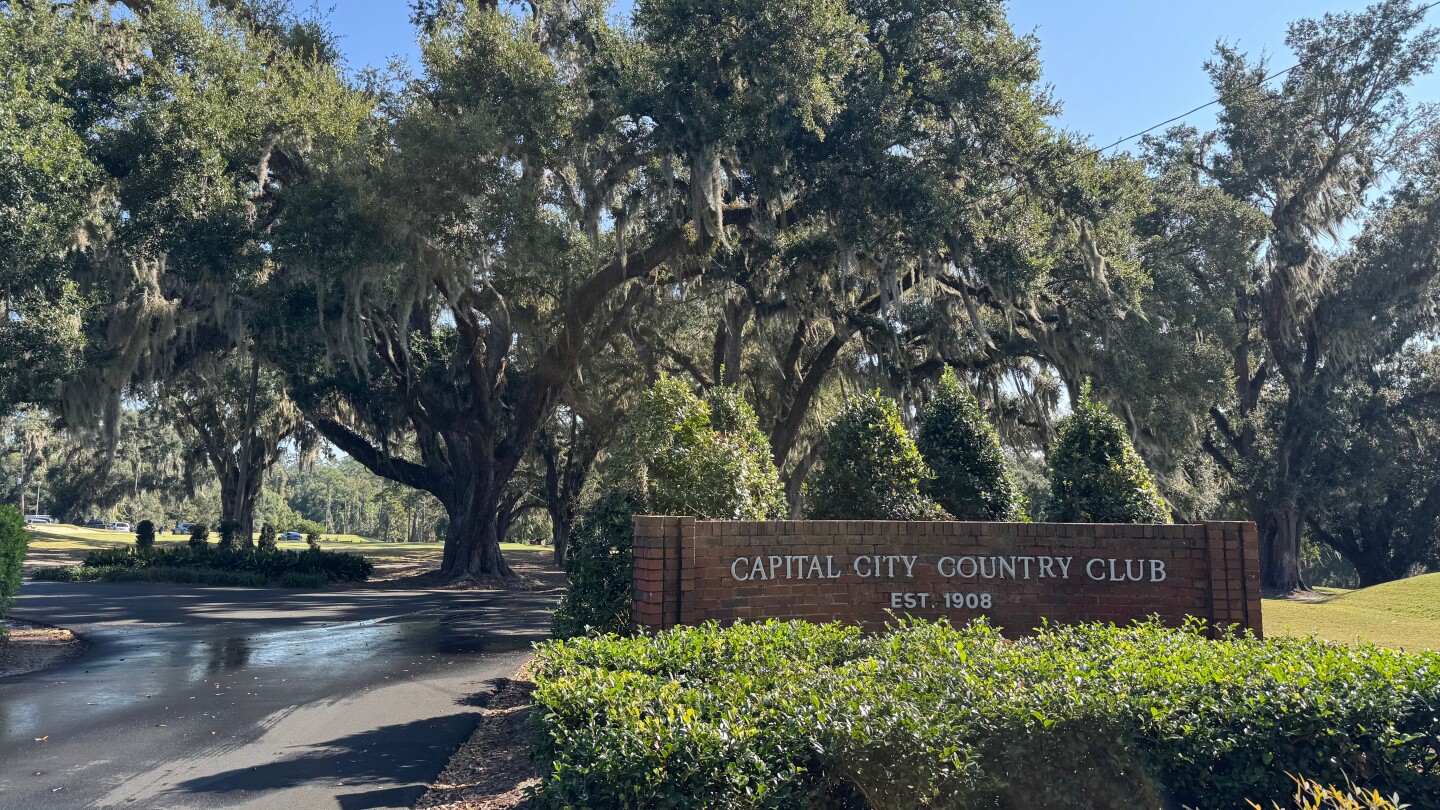
A proposal to sell a Florida golf club built on top of the graves of enslaved people sparks outrage
TALLAHASSEE, Fla. (AP) — A dark history long buried under the towering live oak trees and manicured lawns of a country club in Florida’s capital city of Tallahassee is reviving painful memories of the community’s segregated past and fueling some residents’ calls for a public reckoning.
Under the rolling hills of the Capital City Country Club in one of Tallahassee’s most sought-after neighborhoods, the evidence of Florida’s slave-holding past lies just beneath the surface, in the form of the long-lost burial grounds of enslaved people who lived and died on the plantation that once sprawled with cotton there.
Across the country, many thousands of unmarked and forgotten cemeteries of enslaved people are at risk of being lost, as descendants and volunteers fight development and indifference.
Less than a mile from Florida’s state Capitol, archaeologists with the National Park Service have identified what they believe to be 23 unmarked graves and 14 possible graves near the 7th hole of the golf course, which is semiprivate and currently operates on city-owned land.
“We know they were enslaved. But who were they?” said Tifany Hill, a Tallahassee resident whose family maintains a historic Black cemetery that dates to the 1800s.
More than four years after the Tallahassee City Commission approved plans to create a commemorative site to preserve and protect the unmarked graves at the golf course, no such memorial has been built. Now, city officials are considering selling the land to the country club, which has paid a nominal $1 a year in rent for nearly 70 years.
That lease has been in place since 1956, when the club reverted to private ownership, allowing it to sidestep a U.S. Supreme Court ruling that banned the segregation of public parks and recreational facilities. Among the club’s former members was a judge whose nomination to the nation’s highest court failed after he faced questions about whether he helped privatize the club to avoid integration.
After receiving a recent offer from the country club, the city had proposed selling the 178-acre (72-hectare) golf course for $1.25 million to the club — with the legal requirement that it perpetually operate the property as an 18-hole golf course and that the city be allowed to build and maintain a commemorative site for the graves, with public access guaranteed.
After residents opposed to the sale crowded the City Hall chambers on Wednesday, the commission voted to postpone the issue until its next meeting.
Prospect of sale angers activists
The prospect of selling the land that includes the burial grounds is an outrage to Delaitre Hollinger, a local activist whose ancestors were enslaved in Leon County, where on the eve of the Civil War, three out of every four residents were human chattel owned by elite white families. Hollinger helped lead the push to memorialize the rediscovered graves.
“They were sold on the auction blocks of Leon County, and now we are willing to sell them again,” Hollinger said at Wednesday’s commission meeting.
In Leon County, there are only a handful of known slave burial sites — despite the scores of plantations that once dominated the area, which was the epicenter of Florida’s slavery economy.
Now residents and some commissioners are questioning why it has taken city staff years to act on plans to commemorate the site.
City administrators have attributed the delay to negotiations around enacting the agreement, as well as damaging tornadoes that hit the area in 2024.
Calls to identify those interred at the site
Kathleen Powers Conti, a Florida State University history professor who specializes in the preservation of sites of trauma and contested history, decried the proposal and urged the city to proactively work to identify those interred at the site.
“I am frankly shocked that in all of these conversations, no one in the country club, no one in the city commission is actually looking to find the descendants of those people buried there,” she said at Wednesday’s meeting.
For Hill and other advocates, the people whose final resting place is now another Florida golf course have been denied dignity for too long — in life as well as in death.
“It’s our history,” Hill told the commission. “It could be my ancestor that’s in there.”
___
Kate Payne is a corps member for The Associated Press/Report for America Statehouse News Initiative. Report for America is a nonprofit national service program that places journalists in local newsrooms to report on undercovered issues.
First Appeared on
Source link






